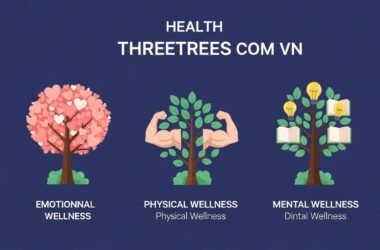The Changing Landscape of Depression Treatment
Depression management has transformed significantly in recent years, embracing both innovation and personalization like never before. Public awareness around mental health continues to grow, helping to dispel stigma and encourage candid conversations not just among patients, but within families, schools, and workplaces. Clinicians are now acutely aware that depression is highly individual, varying in its symptoms, triggers, and best-fit therapies—a realization that has led to more patient-centric care. Modern diagnostics leverage patient history, genetic predispositions, and biological markers to predict risk and tailor strategies better. With so many variations of depression, from postpartum to seasonal affective disorder, the evolving landscape enables providers and mental health professionals to tailor support and resources to individuals more accurately than ever.
Among the modern options, TMS treatment for depression has emerged as a significant breakthrough for those who haven’t found relief with standard medication or psychotherapy. TMS (Transcranial Magnetic Stimulation) is non-invasive and can target specific areas of the brain related to mood regulation, offering hope to many struggling with treatment-resistant depression. Unlike earlier interventions that often relied on a trial-and-error approach, TMS allows for more targeted, repetitive stimulation, and ongoing research has demonstrated notable improvements in adult and adolescent populations seeking alternatives to traditional care.
Evidence-Based Therapies: A Foundation
The cornerstone of effective depression care continues to be evidence-based psychotherapy. Clinical research has consistently validated cognitive Behavioral Therapy (CBT), Interpersonal Therapy (IPT), and behavioral activation, proving effective across different demographics, ages, and severity levels. Patients benefit from structured sessions that help reframe negative thoughts, identify unhelpful behaviors, and build coping skills to manage everyday stressors and complex emotional triggers. Increasingly, blended approaches combine several evidence-based modalities—allowing for greater flexibility and personalization. For example, CBT might be integrated with mindfulness or acceptance therapies, depending on individual needs and therapy goals.
The Role of Medication in Modern Care
Medication remains a crucial treatment for depression, especially for those with moderate to severe symptoms or who cannot benefit from talk therapy alone. Advancements in psychopharmacology have expanded the options available to clinicians and patients, with new generations of antidepressants like SSRIs, SNRIs, and atypical agents offering fewer side effects, shorter timeframes, and increased tolerability. Precision prescribing using genetic testing or digital tools can enhance safety and efficacy. Regular follow-ups, careful monitoring, and open patient-provider communication help spot side effects and make necessary adjustments. SSRIs are prescribed as first-line options due to their safety record and efficacy. SNRIs are helpful for those with specific symptom profiles or those unresponsive to SSRIs.
Emerging Technologies and Innovative Care
Revolutionary technologies are transforming depression diagnosis and treatment. Mobile apps for mood tracking, telehealth counseling, AI chatbots, and web-based cognitive platforms improve convenience and continuity of care. People find it easier to connect via video calls and access psychoeducation, stress management, and self-monitoring tools on smartphones. Wearable trackers enable real-time monitoring of sleep, activity, and physiological stress markers, helping patients identify patterns and share accurate data with healthcare providers.
Alongside digital solutions, neurostimulation methods like TMS and electroconvulsive therapy (ECT) are being refined for better effectiveness and fewer side effects. TMS, non-invasive and supported by growing clinical evidence, is increasingly preferred for stubborn symptoms. ECT remains for severe cases but is now safer, with safeguards to reduce cognitive disruption and improve safety for those in acute distress.
Lifestyle Modifications That Support Recovery
Lifestyle choices, including consistent sleep, regular exercise, nutritious eating, and social connection, are strongly linked to improved mental health and can supplement other treatments. Healthcare providers advise patients on simple and sustainable activities, such as daily walks, structured routines, and social support. Exercise can be managed by developing manageable goals, maintaining a steady bedtime and wake time, avoiding screens and caffeine late in the day, and creating a relaxing pre-sleep routine. Social connections can be formed through friends, family, group activities, or online support communities. A varied diet with whole grains, vegetables, lean proteins, and adequate hydration is recommended, as research shows links between inflammation, gut health, and mood regulation.
The Importance of Early Intervention
Timely intervention can transform the outlook for someone experiencing depression. Recognizing warning signs—such as withdrawal, changes in sleep or appetite, and persistent sadness—promotes faster response and improved recovery prospects. Families, educators, and employers are increasingly proactive, creating an environment where mental health struggles can be addressed openly and supportively. Efforts to educate communities on the symptoms and risk factors of depression ensure that fewer cases go unrecognized. Delaying care not only prolongs emotional distress but also increases the risk for complications, such as co-occurring anxiety, substance use, or even suicidal thoughts and behaviors, making early action critical for better health, stability, and quality of life.
Taking a Holistic Perspective on Mental Health
Effective depression care integrates both traditional and complementary approaches, recognizing that individuals may benefit from a variety of supports throughout their recovery. Many patients value supplementing medical treatment with mindfulness training, meditation practices, creative pursuits like art or music therapy, or time spent in natural settings. Family therapy, peer support groups, or engagement in community initiatives can provide valuable layers of accountability and connection. By engaging multiple facets of wellness—physical, emotional, social, and spiritual—holistic mental health honors the complexity and diversity of each individual’s experience. It encourages adjusting strategies across every stage of the healing journey.
Conclusion: Toward a More Comprehensive Future of Depression Care
Depression treatment has entered a new era of personalization, innovation, and broader understanding. Evidence-based therapies, modern medications, and emerging technologies like TMS are improving outcomes, while lifestyle and holistic practices build resilience. Society is increasingly proactive about early intervention and reducing stigma, encouraging open conversations and support. The future of depression care combines science, technology, and human connection for effective, compassionate treatment. Ongoing research, awareness, and resources promise care that alleviates symptoms and enhances well-being, fostering more hopeful recovery journeys.








